Back in March of last year we had the pleasure to play with Jerry Bouthier, half of French-Italian-British duo JBAG. We had a great time, not least during the dinner before where we dissected contemporary music culture from all angles. When Jerry played again in Stockholm a month or so ago, we managed to squeeze in a coffee before Jerry went to the airport, including more discussion. Since JBAG has a new EP coming out (on Monday), and since Jerry has a very insightful perspective having grown up with the British rave culture in the late 90's and 90's, I thought taking the opportunity to do an interview with the guys was a good idea. Here's the result:
Hanging out with the whole scene at the themed Chuff Chuff parties held every few months (in plush Stately Homes and conference hotels scattered all over the country) on Sundays so that popular djs and promoters could join in the fun too. Most would book hotel rooms in the resort and things would get messy. Tom and I were both based in London at some point constantly touring the UK thanks to Unlimited DJs, our agency then, they had Rocky & Diesel, the Flying records lot, Jon Pleased Wimmin… It was already getting to the end of the stylish UK house scene sadly, it became commercial, just about money, superclubs took over. As the whole scene lost its spontaneity, music didn’t take long to take a back-seat. But then, not long later, electro came alongand I was smitten once more! But that’s another story, haha.
You have to remain open-minded, when house started off people didn’t really get it to start with, it was way too electronic for most. The drugs helped massively. A simple 4/4 beat with 909 kick & open hi-hat seemed thunderous but over two decades on the formula sounds tired and over-used, a simple trick that’s been abused too long. 4/4 is here to stay no doubt about it, but why not experiment within that rigorous frame? It’s possible to be a little creative whilst sticking to dancefloor rules. But no, people want instant fame and recognition, and sorry many don’t do their homework, there’s no tune, it’s badly produced on a laptop… The price to pay for the democratisation of music, everybody has a go… That’s so much to sift through though!
Andrea was a big house-head too, so it’s no surprise it shows up in what we do, just like other influences such as new-wave, italo disco, funk, indie, soul… We like to think that’s balearic, mixing stuff we like outside schools of thought. It’s a natural process that we don’t analyse much. We jam until we’re happy with the way things are going. On the other hand our vision’s always evolving so it’s hard to pinpoint. I’d say – just like when we’re deejaying – that we’re trying to communicate emotions whilst making people dance, that’s the main goal these days, offer something that’s human and makes you feel alive.
It seems more than ever, commercial music is about making money with little artistry involved, it’s so business-orientated and formulaic it’s not very challenging or exciting. If you know your way around a studio you’ll be aware of how easy it is to make electronic music, so why not try do your own thing? Write a memorable song… Saying this it’s an interesting time because of Soundcloud, budding producers have a window to get noticed and can go places even without a label. It’s alive and not controlled by anyone, how revolutionary is that?
"Mogadisco" is out Monday with remix support from Fare Soldi, Pharaoh Black Magic and ELIOT. And as a present to you, our dear readers, the guys give away the original (and in our mind the best) version exclusively through us!
So, who are JBAG?
Jerry Bouthier: JBAG are Andrea Gorgerino and myself. We got together a few years back united by the love of making people dance. We painstakingly learned the job and turned into a production unit. Andrea is the studio man, both brilliant musically and technically, I’m the dj and punter. We’ve learned it’s good one of us doesn’t get too technically involved. I had a 32 track studio in my living room for years and produced every day until I realised I wasn’t exceptional at it on my own, not enough musical training… It’s taught me a lot on how you make music though, which is very useful with Continental. These days Andrea and I are like brothers, with the added bonus that we never argue. In particular in the studio, we’re musically linked and bond over similar things.
Andrea Gorgerino doesn't sound typically British either. I understand you're from Turin?
Andrea Gorgerino: I was born in Turin and lived there until the age of 17 when i finished my studies in classical piano at the conservatoire. I moved to London to complete my engineering studies, that’s when Jerry and I met.
So, I have to ask: Juventus or Torino?
AG: To tell you the truth, i've never been that much into football. I'm going to answer Torino just because they have always been the underdogs.
And Jerry, you were born in Paris, but moved to London in the 80's/90's at a young age.There was obviously a lot happening music-wise at that time in general and in London in particular. Could you describe that period of time for us that weren't there?
JB: I was lucky to witness rave culture early on in London when going out and taking E was still about celebrating all forms of music. I clearly remember dancing to The Stone Roses, Soul II Soul, Rhythm Is Rhythm and Italo house almost one after the other at this big acid house club at the Astoria. You know kids everywhere on podiums with their hands in the air, it was insane! You could tell something very special was going on. Coming from a guitar/synth bands background, always with a keen eye on the dancefloor, it was a revelation: why create barriers between genres when there’s so much good stuff around? That was the reason I moved to London in the first place, Brits have an opened mind when it comes to music. I was sick of sectarian Parisians when there was so much to embrace. From then on, if it had a beat and a good tune I’d play it whatever the style. I truly felt music had changed forever and things would get a lot more mixed up.
What were the main differences between the music cultures of France and the UK at that time as you saw it, and how has that changed?
JB: Brits react to music with their guts. It’s in their genes. With the French it’s more complicated, you need to talk about it first, haha… No seriously you used to have to come to London for a lot of stuff, but now with globalisation, culture is pretty much the same all over the planet. The rest of the world has caught up with UK youth cultures, so in a way London’s less unique today, but the people are still super tolerant, respectful with good values and morals. it's such a cosmopolitan city anyway, it always feels very international.
Jerry, the times we have met, we have discussed a lot of music, the trends of the nu disco and house scenes. Obviously the emergence of house in the late 80's and early 90's has influenced you a lot, and I think there is a distinct retro, and even 90's feel to the early JBAG productions (I'm thinking of your Ladyhawke remix and the X-Ray Sex single for example), but despite that you're not that impressed with the recent 90's revival trend? And Andrea, what do you make of it?
JB: I wish the house revival was doing it for me but it feels like travelling back in time. I use to play house with my late brother Tom (bless him), so it doesn't feel new or exciting to me. Although I’m a huge fan of past music, I’m always more interested with the present. Music's life’s soundtrack and forever remains attached to memories. It’s important going through new experiences all the time and not stay stuck in the old days. With Tom we never just played US house anyway, it felt limiting as there was so much going on in Europe from the word go. We were more tuned onto the balearic spirit and were mixing it all up on Parisian dancefloors like Alfredo, one of our fave djs then… Today there’s a new generation discovering house, fair enough, as the continuation of disco that’s one beat that’ll never fail. But let’s bring today’s perspective into the equation, don’t just unimaginatively copy old records, that’ll lead nowhere in my opinion.
You mention your brother Tom. Is that something you want to expand on? Did I understand correctly that he passed away?
JB: Yes, it was very sad… he committed suicide in NY where he had relocated, 15 years ago. I still can’t believe it. For me it’s like an accident, he had a serious argument with his girlfriend, must have felt low and down, and he fell for it, tragic… I often mention him because we started this together and had the times of our lives. We came up together with the idea and the name Continental all those years ago and I’ve always felt it was nice to keep it going in his memory. We made our dreams come true when we started deejaying on the UK’s house circuit. We played almost everywhere: Ministry, Cream, Manumission, Gatecrasher, Miss Moneypennys, Club UK, Velvet Underground, Golden, Lakota, Club For Life… so many exceptional memories. Hanging out with the whole scene at the themed Chuff Chuff parties held every few months (in plush Stately Homes and conference hotels scattered all over the country) on Sundays so that popular djs and promoters could join in the fun too. Most would book hotel rooms in the resort and things would get messy. Tom and I were both based in London at some point constantly touring the UK thanks to Unlimited DJs, our agency then, they had Rocky & Diesel, the Flying records lot, Jon Pleased Wimmin… It was already getting to the end of the stylish UK house scene sadly, it became commercial, just about money, superclubs took over. As the whole scene lost its spontaneity, music didn’t take long to take a back-seat. But then, not long later, electro came alongand I was smitten once more! But that’s another story, haha.
So, if re-hashing 90's house isn't your thing, what are you trying to aim for with your music?
JB: Don’t get me wrong, I love so many variations of house, half my record collection is house, 90% of the records I play are 4/4. Yet i’m always looking forward to hear new bastardisations, styles mutating one into another, mad, futuristic stuff, guitars, I don’t know… And good tunes too of course. One can never overlook that aspect. The backbone of all good songs is the chord progression, with JBAG we spend a lot of time getting the right chords in the right order. Making something a little sophisticated sound simple and easy. Because you know it’s only dance music, but that doesn’t mean it has to be totally brain-dead and take people for morons.You have to remain open-minded, when house started off people didn’t really get it to start with, it was way too electronic for most. The drugs helped massively. A simple 4/4 beat with 909 kick & open hi-hat seemed thunderous but over two decades on the formula sounds tired and over-used, a simple trick that’s been abused too long. 4/4 is here to stay no doubt about it, but why not experiment within that rigorous frame? It’s possible to be a little creative whilst sticking to dancefloor rules. But no, people want instant fame and recognition, and sorry many don’t do their homework, there’s no tune, it’s badly produced on a laptop… The price to pay for the democratisation of music, everybody has a go… That’s so much to sift through though!
Andrea was a big house-head too, so it’s no surprise it shows up in what we do, just like other influences such as new-wave, italo disco, funk, indie, soul… We like to think that’s balearic, mixing stuff we like outside schools of thought. It’s a natural process that we don’t analyse much. We jam until we’re happy with the way things are going. On the other hand our vision’s always evolving so it’s hard to pinpoint. I’d say – just like when we’re deejaying – that we’re trying to communicate emotions whilst making people dance, that’s the main goal these days, offer something that’s human and makes you feel alive.
The EDM trend sweeping over the US at the moment, what do you make of it? Is it something positive or negative for our dance music culture?
JB: I’m not sure… At first with Gaga, you’d think, great it’s a start. Americans have discovered raving 20 years after the war, good for them, about time. But as they’re culturally imposing globally, EDM’s splashed out onto the rest of the world big time and that’s quite frightening. Call me old-fashioned but this is no music to my ears. I guess everyone at 16 year-old has a phase when they listen to crap noisy stuff, don’t they? Once you’ve acknowledged there’s an alternative to radio pap, there’s a lot of music to be found on the net so maybe it’ll open doors… Now with Las Vegas joining in, the whole dj thing has reached new heights of parody. EDM is like electronic heavy metal, pyrotechnics and tales of excess to titillate the kids, it’s ‘Spinal Tap’ all over again… and so show-bizy with the bottles tables etc. A long, long way from warehouse raves and ‘Voodoo Ray’, isn’t it?
Electronic dance music has on the other hand been a big part of the British music culture, and even the commercial music culture, for ages. How would you describe the difference between commercial dance music in the States and in the UK?
JB: Er, to be honest we follow very little of what goes on in the charts cos we find most of it unbearable. For sure the best music doesn’t creep much in charts right now. For a long time American hits were exclusively downtempo whilst Europe enjoyed uptempo dance hits. America finally woke up from its rap/r’n’b coma and started to produce uptempo club tunes just like Europeans but their stuff sounds like bad hard-trance from fifteen years ago! They used to call it Scouse house in the UK, the kind of music you’d neck sambuca to in trashy bars on the Costa del Sol… It seems more than ever, commercial music is about making money with little artistry involved, it’s so business-orientated and formulaic it’s not very challenging or exciting. If you know your way around a studio you’ll be aware of how easy it is to make electronic music, so why not try do your own thing? Write a memorable song… Saying this it’s an interesting time because of Soundcloud, budding producers have a window to get noticed and can go places even without a label. It’s alive and not controlled by anyone, how revolutionary is that?
Jerry, you recently set up your own label, Continental Records, but before that you were involved with the iconic French indie-electro label Kitsuné. Can you tell us more about that?
JB: I was sucked into Kitsuné cos I liked the label so much from their humble beginning (the ‘Love’ compilation). I feel a bit like a godfather to this baby. Ok I’m not saying I’m into every single band that Gildas goes for but as a whole I love the vibe. Kitsuné’s about talent, originality, a certain forward-thinking irreverence… I did one cd mix for them (BoomBox) then another (Ponystep), then we started the Soleil series which is doing really well. People have noticed, it wasn’t just another mixed cd, it’s dancey but has got lots of songs, goes places… almost like a little film to listen to. My experience working on fashion shows’ soundtracks has made me experiment more with dj mixes in an almost chill-out, psychedelic way, kinda ecstatic with moving melodies and always a groove to cling onto. I try to combine both Kitsuné’s spirit and mine. It’s always fabulously enjoyable.
That means you were certainly not a newcomer when setting up your own label Continental records. How was that like? More work or more fun?
JB: True, I learned a lot from hanging out with Gildas. He’s definitely not of the malicious kind, he’s honest with a healthy attitude towards business, it’s refreshing. And he respects artists… Doing a label is fun because basically we put out the music we like, it’s quite a selfish thing to do really. Yet it also gives friends and like-minded musicians a platform to do their own thing. We’d like to think it could make a difference, show that it’s possible to keep the quality threshold high and give talented people a chance. Not insulting the public, showing that we care about music and what it says more than anything else, proposing carefully picked remixers and stylish artwork. We’d rather not release anything than come up with half-arsed singles. There’s too much of that around. Again everybody has a go and is entitled to, no?
How would you describe the label and the music you put out?
JB: I’d say we release dj-orientated pop. It can be nu-disco, indie-dance, electrodisco, bit housey, whatever the label… we’re opened as long as they’re good songs/tunes that make good singles - with an emphasis on the dancefloor. Well, at least that’s the idea, haha.
I gotta say, I really love the artwork on your releases. Who's responsible for those?
JB: It’s a young and talented graphic designer from Paris called Marc Armand (check his website: http://tusaisqui.fr), a friend of the lovely Jupiter. For Continental we worked hard defining a contemporary feel that was inspired by the past. A bit like the music, the 80s remain an inspiration cos it’s the golden age of electronic music with little imposed rules, but we try to come up with something that’s of today. It’s easy to say ‘this was great then’, we wanna shape the present with amazing modern productions. And by that I don’t mean the kind of stuff brands are trying to flog us, but often what’s on the outskirts, more personal creations…
The next release on the label is your own single Mogadisco, which is out Monday. Describe it for us please!
JB: Mogadisco came out of nowhere. We were playing about with steel-drums samples, such a nice warm sound, and Andrea came up with this fabulous chord progression that really lifts spirits up. It took us a while to get it right mind. We like to contemplate a lot of options: sound-wise, arrangement-wise… I road-test drafts and come back with comments. The track’s our ode to hedonism… our call to party! Then Brazil’s Caio Zini, whose graphics I loved, delivered the fabulous video which has been doing the rounds all summer.
And what about in the studio? The old debate hardware versus software?
AG: It's a topic that doesn't interest us that much. For us it's long been an hybrid environment, making the most of what’s around. In our studio sounds coming from hardware machines like the Juno 106, Jx8P, Prophet VS, Oberheim Matrix, U220, SP1200… are constantly layered with software plugins's sounds to aim at creating sounds that are at the same time modern and familiar, in a classic way, a combination of moods. We have no problem at all using software plugins as long as we like their sound. And some of them are amazing. We’re big fans of plugins such as Soundtoys, D16, U-he, FXpansion, Native Instrument, Fabfilter, or even free ones like some of the TAL products. As far as softwares, we combine Ableton Live and Logic. Live is used in the first part of the creative process when we need to put ideas down quickly and try stuff out. Then we switch to Logic to create the final arrangement and do the mix.
And what do you have up your sleeve in the future?
JB: We’ve got lots of singles on the go from all over the place. It’s definitely a global scene. In a world saturated by trash, melody’s become the new alternative. All musicians with a good heart are at it."Mogadisco" is out Monday with remix support from Fare Soldi, Pharaoh Black Magic and ELIOT. And as a present to you, our dear readers, the guys give away the original (and in our mind the best) version exclusively through us!









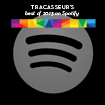



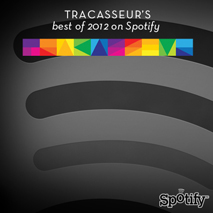

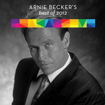
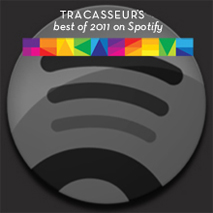
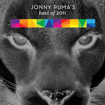
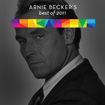

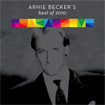
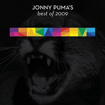
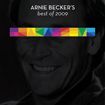










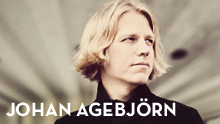











2 comments:
I have matured and realized that it is better to spend time on myself, there is a professional writer on WriteMyPaper, for example, it is better than sitting and thinking for yourself, because any written work will be written for you
An uncontested divorce can typically be finalized relatively quickly, often within a few months, provided all required documentation is in order, and there are no complicating factors. Couples seeking an uncontested divorce may benefit from consulting with an experienced family law attorney to ensure all legal requirements are met and to facilitate a smooth and efficient process. How much is an uncontested divorce in Virginia
Post a Comment